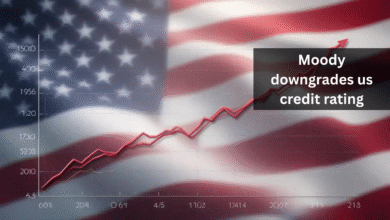Castle APK Download: Free Streaming App Guide 2025

In today’s digital age, entertainment consumption has shifted dramatically towards mobile platforms, with users seeking convenient and cost-effective ways to access their favorite movies, TV shows, and live content. Among the numerous streaming applications available, Castle APK has emerged as a popular choice for Android users looking for comprehensive entertainment solutions. This guide will walk you through everything you need to know about Castle APK download, installation, features, and safe usage practices.
What is Castle APK?
Castle APK is a versatile entertainment application designed specifically for Android devices, offering users access to an extensive library of streaming content without the need for expensive subscriptions. The app serves as an all-in-one entertainment hub where users can watch movies from various film industries including Hollywood, Bollywood, and South Indian cinema, along with TV shows, web series, live sports, documentaries, and much more.
The application has gained significant popularity due to its user-friendly interface, high-quality streaming capabilities, and the fact that it provides free access to premium content. Castle APK supports HD streaming, offline downloads, and multi-device compatibility, making it an attractive alternative to traditional streaming services that require monthly subscriptions.
What sets Castle APK apart from other streaming applications is its comprehensive content library that spans multiple genres and languages. Whether you’re interested in the latest blockbuster movies, trending web series, live sports events, or educational documentaries, the app provides a centralized platform for all your entertainment needs.
Key Features and Benefits
Extensive Content Library
Castle APK boasts an impressive collection of content that caters to diverse entertainment preferences. The app provides access to movies from leading film industries worldwide, ensuring that users can enjoy content in their preferred language and genre. From action-packed Hollywood blockbusters to romantic Bollywood films and regional cinema, the platform offers something for everyone.
The application also features an extensive collection of TV shows, web series, and reality shows, allowing users to binge-watch their favorite series without interruption. Live TV channels are another significant feature, providing access to news, sports, and entertainment channels from around the world.
High-Quality Streaming
One of the standout features of Castle APK is its commitment to providing high-definition streaming experiences. The app supports HD quality video playback with minimal buffering, ensuring smooth and enjoyable viewing sessions. The built-in media player is optimized for various screen sizes and offers advanced features like gesture controls and adjustable playback speeds.
Offline Viewing Capabilities
Understanding that users may not always have access to stable internet connections, Castle APK includes robust download functionality. Users can download their favorite movies, shows, and episodes to watch offline later, making it perfect for travel or areas with limited connectivity. The download manager supports batch downloads and provides fast download speeds, allowing users to quickly save multiple pieces of content.
Multi-Device Compatibility
Castle APK isn’t limited to smartphones alone. The application supports installation on various devices including Android tablets, Smart TVs, and even PCs through emulation. This cross-platform compatibility ensures that users can enjoy their favorite content on their preferred screen size, whether they’re relaxing at home or on the go.
How to Safely Perform Castle APK Download
System Requirements
Before proceeding with Castle APK download, ensure your device meets the minimum system requirements. For Android devices, you’ll need Android version 5.0 or above, a stable internet connection (4G mobile data or WiFi), and sufficient storage space (approximately 47MB for the app installation).
Step-by-Step Download Process
Step 1: Enable Unknown Sources
Since Castle APK isn’t available on the Google Play Store, you’ll need to enable installation from unknown sources. Navigate to your device’s Settings menu, select Security & Privacy, and toggle on “Allow installation from unknown sources” or “Install unknown apps.”
Step 2: Find a Trusted Source
The most crucial aspect of Castle APK download is ensuring you’re downloading from a reputable and secure source. Look for official websites or well-established APK repositories that have positive user reviews and security certifications. Avoid suspicious websites that may contain malware or modified versions of the app.
Step 3: Download the APK File
Once you’ve identified a trusted source, locate the latest version of Castle APK (currently v2.6.7 as of June 2025) and click the download button. The file size is approximately 47MB, so ensure you have adequate storage space and a stable internet connection.
Step 4: Install the Application
After the Castle APK download is complete, locate the downloaded file in your device’s file manager. Tap on the APK file and follow the on-screen installation prompts. The installation process typically takes just a few minutes.
Step 5: Launch and Set Up
Once installation is complete, you can launch Castle APK from your home screen or app drawer. The app may request certain permissions for optimal functionality, such as access to storage for downloads and network access for streaming.
Installation on Different Platforms
Android Installation
The primary platform for Castle APK is Android, where the installation process is straightforward. After completing the Castle APK download, the app integrates seamlessly with your device’s interface and provides access to all features without requiring additional software.
Smart TV Installation
For users who want to enjoy Castle APK on larger screens, the app can be installed on Android TV devices. The process involves downloading the APK file to your TV or transferring it from another device, then following similar installation steps as on mobile devices.
PC Installation
While Castle APK is designed for mobile devices, PC users can still access the application through Android emulators like BlueStacks. This requires downloading and installing an emulator first, then performing the Castle APK download within the emulated Android environment.
iOS Considerations
iOS users face more challenges when attempting to use Castle APK, as the platform requires jailbroken devices and third-party installation methods. Most iOS users opt for alternative streaming solutions or use the web version when available.
Safety and Security Considerations
Choosing Legitimate Sources
The importance of selecting trustworthy sources for Castle APK download cannot be overstated. Legitimate sources implement security measures to ensure their APK files are free from malware, viruses, and other harmful software. They also provide regular updates and maintain transparency about their distribution practices.
Avoiding Risks
When performing Castle APK download, be cautious of websites that require excessive permissions, ask for personal information, or redirect you through multiple suspicious links. Legitimate sources typically offer direct downloads without requiring registration or payment.
Regular Updates
Keeping your Castle APK installation up to date is crucial for both security and functionality. Regular updates include security patches, bug fixes, and new features that enhance the overall user experience. Most legitimate sources notify users when new versions are available.
User Experience and Interface
Castle APK features an intuitive and user-friendly interface designed to make content discovery and consumption as simple as possible. The main dashboard provides easy access to different content categories, search functionality, and personalized recommendations based on viewing history.
The app’s navigation system is straightforward, with clearly labeled sections for movies, TV shows, live channels, and downloads. The search function is robust and supports multiple languages, making it easy to find specific content regardless of the original language or region.
Customization Options
Users can customize their Castle APK experience through various settings options. These include video quality preferences, subtitle settings, download locations, and notification preferences. The app also supports multiple languages for both interface and content, catering to a global user base.
Streaming Quality Options
Castle APK provides multiple streaming quality options to accommodate different internet speeds and data limitations. Users can choose from various resolutions ranging from standard definition to high definition, ensuring optimal viewing experiences regardless of their connection quality.
Troubleshooting Common Issues
Installation Problems
If you encounter issues during Castle APK download or installation, first verify that you’ve enabled unknown sources in your device settings. Ensure you have sufficient storage space and that your device meets the minimum system requirements. If problems persist, try downloading from an alternative trusted source.
Streaming Issues
For streaming-related problems, check your internet connection stability and speed. Castle APK requires a reliable connection for smooth playback. If you experience buffering or quality issues, try switching to a lower resolution setting or connecting to a stronger WiFi network.
App Crashes or Freezing
If Castle APK crashes or freezes frequently, try clearing the app’s cache and data through your device’s application settings. Restarting your device can also resolve temporary software conflicts. If issues continue, consider uninstalling and performing a fresh Castle APK download and installation.
Legal and Ethical Considerations
While Castle APK provides access to a vast library of content, users should be aware of the legal implications of using such applications. The legality of streaming content through third-party apps varies by jurisdiction and depends on factors such as content licensing and copyright laws.
Users are encouraged to understand their local laws regarding streaming and downloading copyrighted content. Some regions have strict regulations about accessing content through unofficial channels, while others may be more lenient. It’s always advisable to use legitimate streaming services when possible and to respect content creators’ rights.
Alternatives and Comparisons
While Castle APK offers comprehensive entertainment features, users may also consider other streaming alternatives based on their specific needs and preferences. Official streaming platforms like Netflix, Amazon Prime, and Disney+ provide legal access to premium content with guaranteed quality and security.
For users seeking free alternatives, there are other APK-based streaming applications available, though each comes with its own set of features, content libraries, and potential risks. When comparing options, consider factors such as content variety, streaming quality, update frequency, and security measures.
Future Developments and Updates
The Castle APK development team continues to work on improving the application with regular updates that introduce new features, enhance performance, and expand content libraries. Recent updates have focused on improving streaming quality, adding new content sources, and enhancing user interface elements.
Future developments may include improved recommendation algorithms, enhanced download capabilities, better multi-device synchronization, and expanded content partnerships. Users who perform Castle APK download from official sources typically receive notifications about these updates automatically.
Frequently Asked Questions About Castle APK
What is Castle APK and how does it work?
Castle APK is a free streaming application designed for Android devices that provides access to movies, TV shows, live channels, and other entertainment content. The app works by aggregating content from various sources and presenting them through a user-friendly interface. Users can stream content directly or download it for offline viewing. The application doesn’t host content itself but rather provides links to external streaming sources, making it a content aggregator rather than a content provider.
Is Castle APK safe to download and use?
The safety of Castle APK depends largely on where you download it from and how you use it. When downloaded from reputable sources, the app itself is generally safe and free from malware. However, since it’s not available on official app stores, there’s always some risk involved with third-party APK installations. To maximize safety, always download from trusted sources, keep your device’s security software updated, and avoid clicking on suspicious ads or pop-ups within the app. Additionally, be cautious about granting unnecessary permissions during installation.
Can I use Castle APK on devices other than Android phones?
Yes, Castle APK can be used on various devices beyond Android smartphones. The app works on Android tablets, Android TV devices, and Smart TVs running Android OS. You can also use it on Windows PCs through Android emulators like BlueStacks or NoxPlayer. However, iOS devices require jailbreaking to install APK files, which most users prefer to avoid. The app is optimized for different screen sizes, so the experience remains consistent across various devices.
Do I need to pay for Castle APK or any subscription fees?
No, Castle APK is completely free to download and use. There are no subscription fees, premium memberships, or hidden charges associated with the application. The app generates revenue through advertisements, which may appear during content browsing or streaming. While the core functionality remains free, users should be prepared to encounter ads as part of the experience. Some versions may offer ad-free experiences through optional donations, but the basic service remains accessible without payment.
How much storage space does Castle APK require?
The Castle APK installation file is approximately 47MB in size, which is relatively small compared to many modern applications. However, the actual storage requirements depend on your usage patterns. If you plan to download content for offline viewing, you’ll need additional storage space based on the number and quality of downloads. HD movies can range from 1-4GB each, while TV show episodes typically require 200MB to 1GB depending on length and quality. The app allows you to manage downloads and clear cache to free up space when needed.
What should I do if Castle APK isn’t working properly?
If you’re experiencing issues with Castle APK, try several troubleshooting steps. First, check your internet connection stability and speed, as streaming requires reliable connectivity. Clear the app’s cache and data through your device settings, then restart the application. If problems persist, try restarting your device or reinstalling the app with a fresh download. Ensure you’re using the latest version of Castle APK, as updates often fix bugs and improve performance. For persistent streaming issues, try switching to different content sources within the app or adjusting video quality settings.
Are there any legal concerns with using Castle APK?
The legal status of Castle APK varies depending on your location and local copyright laws. While the app itself is legal to download and install, accessing copyrighted content through unofficial channels may violate copyright laws in some jurisdictions. Users should research their local laws regarding streaming copyrighted content and understand the potential legal implications. Some countries have strict enforcement of copyright laws, while others may be more lenient. It’s always advisable to use official streaming services when possible and to respect content creators’ intellectual property rights.
How often is Castle APK updated with new content?
Castle APK typically receives regular updates that include new content, bug fixes, and feature improvements. The frequency of content updates depends on the sources the app aggregates from, but users generally see new movies and TV shows added weekly or even daily. Major app updates that include new features or interface improvements are released every few months. To ensure you have access to the latest content and features, it’s recommended to check for updates regularly and download new versions when they become available from trusted sources.
Can I download content from Castle APK for offline viewing?
Yes, one of Castle APK’s key features is the ability to download content for offline viewing. The app includes a built-in download manager that allows you to save movies, TV shows, and episodes directly to your device’s storage. You can choose different quality options for downloads to balance file size with video quality. The download feature is particularly useful for users with limited internet connectivity or those who want to watch content while traveling. Downloaded content remains accessible through the app’s download section even without an internet connection.
What makes Castle APK different from other streaming apps?
Castle APK distinguishes itself through several unique features and characteristics. Unlike many streaming apps that focus on specific regions or content types, Castle APK offers a truly global content library spanning multiple languages and film industries. The app provides both streaming and download capabilities without requiring user registration or subscription fees. Its interface is designed to be intuitive for users of all technical levels, and it supports multiple devices and screen sizes. Additionally, Castle APK frequently updates its content sources and maintains compatibility with various Android versions, ensuring broad accessibility for users with different devices and preferences.
Conclusion
Castle APK represents a comprehensive solution for users seeking free access to diverse entertainment content on their Android devices. While the Castle APK download and installation process requires some technical knowledge and careful attention to security considerations, the app provides significant value through its extensive content library, high-quality streaming capabilities, and user-friendly interface.
Success with Castle APK depends largely on choosing legitimate sources for download, maintaining updated versions, and using the application responsibly while being mindful of legal considerations in your jurisdiction. For users who prioritize convenience, variety, and cost-effectiveness in their entertainment consumption, Castle APK offers a compelling alternative to traditional streaming services.
Whether you’re looking to catch up on the latest movies, binge-watch popular TV series, or stay updated with live sports and news, Castle APK provides the tools and content library to meet diverse entertainment needs. By following proper installation procedures and security practices, users can enjoy a rich streaming experience while minimizing potential risks associated with third-party applications.
Remember that the digital entertainment landscape continues to evolve, and staying informed about updates, security practices, and legal considerations will help ensure the best possible experience with Castle APK and similar applications.
You May Also Like :







